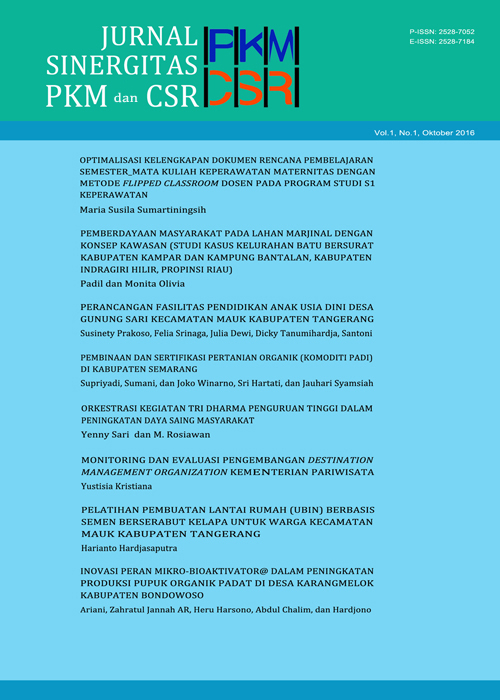IMPROVING DATA LITERACY AMONG JOURNALISTS THROUGH WORKSHOP AND CONFERENCE TO ADVANCE THE ANALYTICAL SKILLS IN REPORTING
DOI:
https://doi.org/10.19166/jspc.v8i3.8001Kata Kunci:
computational journalism, data journalism, data literacy, data-driven storytelling, workshop and conferenceAbstrak
In an extraordinary situation such as pandemic and disaster, journalists perform a beneficial function in presenting accurate and reliable information. Information is passed on to the public who are in dire need of guidance during an emergency situation especially when the public is overloaded with unreliable information. Therefore, journalists have an obligation to present truth and eliminate disinformation by providing fact-based storytelling to the public as stated in one of the elements of journalism. The practice of data journalism has become popular as we are becoming more familiar with the presence of data as well as the development of technology. Thus, improving data literacy among journalists has become essential. The creation of Data and Computational Journalism Conference and Workshop Indonesia (DCJ-CI) 2022 aims to enhance the data skills of journalists nationwide by presenting a series of hands-on workshops, talk shows, seminars, and networking sessions to journalists, journalism students and lecturers, as well as data enthusiasts in Indonesia. This event was attended by hundreds of participants throughout the country and joined by speakers and experts from countries like U.S., England, India, Singapore, Nepal, and Indonesia. DCJ-CI resulted in data journalism and computational products published in several media in Indonesia.
Referensi
Desai, A., Nouvellet, P., Bhatia, S., Cori, A., &
Lassmann, B. (2021). Data journalism and the COVID-19 pandemic: opportunities and challenges. The Lancet Digital Health, 3(10), e619-e621. https://doi.org/10.1016/S2589-7500(21)00178-3
Ewart, J., & McLean, H. (2018). Best practice
approaches for reporting disasters. Journalism: Theory, Practice & Criticism, 146488491875713. doi:10.1177/1464884918757130
Howard, A. (2014). The Art and Science of Data-
Driven Journalism. Tow Centre for
Digital Journalism - a Tow/Knight Report.
http://towcenter.org/the-art-and-science-of-data-driv en-journalism/
Kirchhoff, S. (2022). Journalism Education’s
Response to the Challenges of Digital Transformation: A Dispositive Analysis of Journalism Training and Education Programs. Journalism Studies, 23(1), 108-130. https://doi.org/10.1080/1461670X.2021.2004555
Miles, B., & Morse, S. (2007). The role of news
media in natural disaster risk and recovery. Ecological Economics, 63(2-3), 365-373. https://doi.org/10.1016/j.ecolecon.2006.08.007
Mohammed, M., Sha’aban, A., Jatau, A. I.,
Yunusa, I., Isa, A. M., Wada, A. S., Obamiro, K., Zainal, H., & Ibrahim, B. (2022). Assessment of COVID-19 Information Overload Among the General Public. Journal of Racial and Ethnic Health Disparities, 9(1), 184-192. https://doi.org/10.1007/s40615-020-00942-0
State of Open Data | Data Literacy. (2019).
D4D.net. Retrieved June, 2023, from https://www.d4d.net/sood/chapters/issues/data-literacy/
Tandoc, E. C., Lim, Z. W., & Ling, R. (2018).
Defining “Fake News”: A typology of scholarly definitions. Digital Journalism, 6(2), 137-153. https://doi.org/10.1080/21670811.2017.1360143
The Peabody Awards. (n.d.). Interactive
Winner 2016.https://peabodyawards.com/award-profile/hell -and-high-water/
The Pulitzer Prizes. (n.d.). The 1993 Pulitzer Prize Winner in Public Service. https://www.pulitzer.org/winners/miami-herald
UNDP. (2004). Reducing Disaster Risk: a
Challenge for Development-a Global Report. In Disaster and Crisis Management. http://www.ifrc.org/en/what-we-do/disaster-management/preparing-for-disaster/risk-reduction/reducing disaster-risk/
Unduhan
Diterbitkan
Terbitan
Bagian
Lisensi
Hak Cipta (c) 2024 Utami diah kusumawati, yearry panji setianto

Artikel ini berlisensiCreative Commons Attribution-ShareAlike 4.0 International License.
Authors who publish with this journal agree to the following terms:
1) Authors retain copyright and grant the journal right of first publication with the work simultaneously licensed under a Creative Commons Attribution License (CC-BY-SA 4.0) that allows others to share the work with an acknowledgement of the work's authorship and initial publication in this journal.
2) Authors are able to enter into separate, additional contractual arrangements for the non-exclusive distribution of the journal's published version of the work (e.g., post it to an institutional repository or publish it in a book), with an acknowledgement of its initial publication in this journal.
3) Authors are permitted and encouraged to post their work online (e.g., in institutional repositories or on their website). The final published PDF should be used and bibliographic details that credit the publication in this journal should be included.


